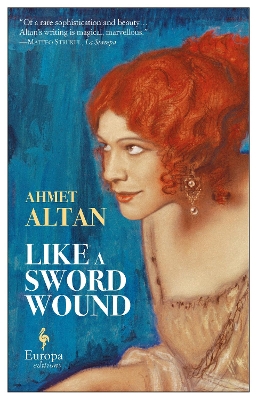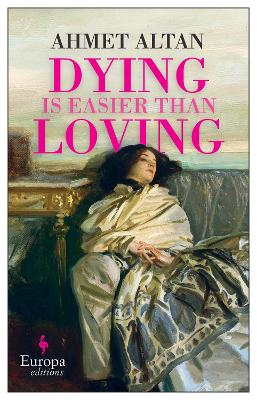Ottoman Quartet
2 primary works • 3 total works
Book 1
“A deeply compelling and immersive narrative about love, desire, loneliness and landscape.”—Elif Shafak
Altan’s Ottoman Quartet spans the fifty years between the final decades of the 19th century and the post-WWI rise of Atatürk as both unchallenged leader and visionary reformer of the new Turkey. The four books tell the stories of an unforgettable cast of characters, among them: an Ottoman army officer, the Sultan’s personal doctor, a scion of the royal house whose Western education brings him into conflict with his family’s legacy, and a beguiling Turkish aristocrat who, while fond of her emancipated life in Paris, finds herself drawn to a conservative Muslim spiritual leader. Intrigue, betrayal, love, war, progress, and tradition provide a colourful backdrop against which their lives play out. All the while, the society to which they belong is transforming, and the Sublime Empire disintegrates. Here is a Turkish saga reminiscent of War and Peace, that traces not only the social currents of the time but also the erotic and emotional lives of its characters.
Book 2
“A deeply compelling and immersive narrative about love, desire, loneliness and landscape.”—Elif Shafak (on book 1 of the series)
“Altan uses a Tolstoyan combination of the epic and the intimate to explore questions of national identity and historical narrative.”—The Observer
“Altan’s descriptions of a stifling atmosphere of authoritarian repression in Istanbul in the early 1900s conjure up constant comparisons with today’s Turkey.”—The TLS
The third book in the Ottoman Quartet, set in the years leading up to WWI, is steeped in the tumultuous events and the political struggle that shaped 20th century Turkey, from the war against the Bulgarian army and the coup that resulted in the nation’s one-party rule. Against this background, a tormented, obsessive love affair unfolds between Nizam, the son of Hikmet Bey, and Russian pianist Anya.
This tapestry of love and war allows Altan to analyse the structure of male power and its degeneration into violence against women, uncompromising nationalism, and pervasive censorship.
Atan confirms himself as a caustic, courageous writer, never afraid to denounce an arrogant and undemocratic power, allowing the reader to read between the lines the situation of contemporary Turkey.


